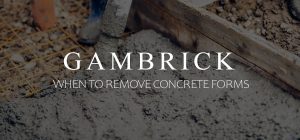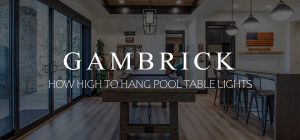
We asked 10 of our clients who have gone through the home building process to share what they wish they knew before building their first home. Avoid making these common mistakes.
Drive Through the Area You Want to Build In During the Day and Night
“When building my first home I didn’t know the area well enough,” said James Bolden. “I only went by the site during the day and researched the area online and with my realtor. I never went by at night and wish I had. The area was darker than I liked and it’s surprisingly noisy”.
“When picking the right location to build a new home, make sure you visit the neighborhood at different times and on the weekend. Also check online for registered criminals in the area that could be close by.”
Don’t Be Afraid to Negotiate

Get Your Finances in Order Before Applying for a Construction Loan
You’ll need to own the land your building on if it’s a vacant lot. For a knock down you need to negotiate with the bank and make them aware of your future plans for the property. Don’t knock down the home until you get approval from the bank and secure your new construction loan and a top custom home builder like Gambrick.
“It’s not easy to score good mortgage rates even with excellent credit and a good job if your building a new home. Construction loans don’t work exactly the same as a traditional mortgage and this was a second home so the bank gave me some headaches. The interest rate on my new mortgage wasn’t great. Big lesson learned: If you’re planning on building a second home get your finances and other debts in order first or you’ll be paying a high rate. Good news was I only had to pay the interest on the construction loan until I got a CO. Bad news was I had to pay cash for the lot. I should’ve shopped around for a better deal.” Mark Bowden.
Make Sure You Understand What Private Mortgage Insurance Is Before Agreeing to Pay It

Only 27 percent of respondents could accurately describe what private mortgage insurance is in a homebuying survey of over 1,000 Americans conducted by GOBankingRates and NBKC Bank. PMI is something you might have to pay if you put down less than 20 percent on a conventional loan.
“The one advantage of PMI is that your interest rate may be slightly lower than a loan without PMI,” said former army officer and loan officer at NBKC Bank, Jim Schneider. “However, the cost of that PMI will typically be far more than any savings related to the lower rate.”
Don’t Build a House That Will Be a Constant Project
“My husband and I built our first and only summer home at the Jersey Shore after hurricane sandy. We found a great spot on the Manasquan river in Brielle, knocked down the house and hired Gambrick to build us a beautiful home. The only problem is we didn’t include everything we wanted during the initial build and have regretted it ever since. We’ve had them back 3 different times to add things to the home we should have done in the first place. Make a list of everything you want to do and do it all at one time, be done with it and enjoy the home. Don’t be like us and have a constant project going on.” Sandra O’Connor.
Consider If Your House Would Be a Good Family Home

Don’t Put All of Your Money Into the Down Payment
“I had no idea when building my first home how many changes I’d be making along the way. And that’s an expensive thing to do. Believe me you’ll be changing your mind and adding things a lot. You’ll need the money. Even if you don’t make major changes you’ll want small personal things. I was always at Home Depot and Lowes picking out stuff and driving my builder nuts with changes but he did everything I asked and didn’t charge me. They were great it was just too much for me to decide when planning the house. I didn’t know exactly what I’d want until standing in the rooms”. Joanne Richards.
If putting down 20 percent for a conventional loan would wipe out your emergency fund, consider other loan options that allow you to put down less — or nothing at all in some cases.
“The No. 1 misconception when buying a home is that you have to put 20 percent down,” said military spouse and loan officer at NBKC Bank Amy Stuhr Paterson. “You potentially can put as little as no money down with a VA loan for those with a military background and buying within the VA maximum county limits. FHA [loans], if [a person is] buying within their county limits, allows as little as 3.5 percent down, and conventional financing allows for as little as 5 percent down.”
Don’t Skip the Final Walk Through
“After building my first home I skipped the final walk through with the builder. Once I moved in I found little things all over the place but it was too late. I had already moved in and even though the builder was willing to come back and fix things it was a pain doing it while I was living there. They had to work around all my stuff. I was so paranoid about damaging my things or getting everything dirt. Get everything done right before you move in. That’s the best advise I can give anyone. When I built my second home with Gambrick we did the final walk though. There wasn’t really anything to find this time but still you should do it just in case.” Rebecca Weintraub.
Budget for Unexpected Costs
“One of the biggest things I overlooked when building my first home was forgetting all of the ‘extras’ that I needed. Like lawn furniture, tools, a ladder and all the furniture for the house,” said Natalie Harper. “I should have accounted for some of that but I didn’t. I had some furniture from my apartment but that’s no where near what you’ll need when furnishing an entire house. Also things like bedding and bathroom stuff really adds up. Even little things like picture frames and candles get expensive for a large home. And don’t forget about fees like a landscaper and pool guy if you have one.”
Understand How Debt-to-Income Ratio Works
“We had saved up about $5,000 to put down on our home. We didn’t realize that the bank wasn’t going to take into account the down payment money we had saved when factoring in our debt-to-income ratio, which meant that they required us to get a ‘gift’ from someone else in the amount of our down payment,” said financial coach Jessi Fearon. “My husband and I have never had to borrow money from our parents, so it was a strange thing to have to ask my in-laws to borrow money we already had saved.”
Make sure you understand how debt-to-income ratio is calculated before you apply for a loan, because it could determine whether or not you get approved.
“Underwriters take into consideration the debt-to-income ratio –minimum monthly liabilities, including the new mortgage payment and applicable HOA dues, divided by the borrowers’ gross income — and assets to confirm the borrowers’ ability to qualify for a loan,” said Stuhr Paterson.
Plan for Furnishings When Building My First Home
“I built a home and didn’t think much about where I was going to put my furniture. I got the plans online and didn’t work with an architect or builder and that was a huge mistake. The windows were all wrong for where I wanted to put my bed and furniture, there was no where to put my tv.” The electrical was wrong for where I wanted to put my dining room and kitchen table. Little things like that really make a big deal,” said Martin Owaller.
Shop Around for Vendors
“We were nervous while building my first home and should have shopped around a lot more for things like the appliances and fireplace. You get a much better deal shopping online and that stuffs expensive. I negotiated with the builder to supply the appliances myself to save money but then just went out and bought everything retail,” said Jerry Wagner. “We waited until the last minute and then just went shopping at Lowes and Home Depot but their prices were not that great. Take your time and shop for deals online and even then negotiate to get a better deal. You can save thousands.
Check Your Credit Before Applying for a Mortgage
“My biggest mistake when building my first home was not checking my credit ahead of time,” said Miranda Marquit. “We had two double-reported student loans on the report, so it looked like our debt-to-income ratio was much higher than it actually was. Because we didn’t know about it, we couldn’t get it fixed before applying for the mortgage. Our pre-approval and the process as a whole was delayed because we had to go through additional underwriting hoops.”
It’s important to know where your credit stands before applying. Keep in mind that there are additional factors a lender will take into consideration. Even if you have excellent credit you might not be approved.
“Your credit score is important because it shows your history and willingness to pay financial obligations. This does not show your ability or capacity to repay the loan,” said Schneider. “You might have a great credit score but still not be approved for a mortgage if your debt ratio is too high.”
Keep Track of How Much You Spend on Upgrades
“We once built a house and din’t realize a lot of things don’t come with a new home like landscaping. That was a huge bill that we weren’t prepared for. Also a fence and a security system,” said Martha Blackman. “We ended up spending almost $30,000 more after the house was built. Little things that had nothing to do with building the house added up.”
Take Water Issues Seriously
“We built our first home before hurricane Sandy and didn’t give much thought to the height of the house. It was low when we got it and was within code. We had the option of going higher and maxing the height of the house but chose not to. I would say go as high as you can just in case because you never know what could happen if you live anywhere near water,” said Rebecca McGreggor.
“We’ve since lifted the home, installed a french drain and sump pump and an elevator. It was a big mess that could have all been avoided if we had just put the house higher from the start. Building my first home wasn’t easy and we overlooked things.”
Educate Yourself About Mortgage Terms
“My biggest mistake when building my first home was not understanding my own mortgage terms,” said Agatha Browning. “I had a first and construction loan. The first was an adjustable rate, interest-only HELOC. I didn’t really understand what that meant. If I understood it I would have realized I couldn’t really afford it. The banks lent me way more than I could handle and didn’t really explain anything to me. Once the full payments from the construction loan kicked in I was struggling to make my payments”
Browning isn’t alone — the GOBankingRates and NBKC homebuying survey of over 1,000 Americans found that most people could not identify incorrect statements about a mortgage, which seems to indicate that most people don’t fully understand how mortgages work. Only 1.5 percent of respondents knew that the all of following statements are inaccurate: All mortgages require that you provide a down payment; all mortgage applications require pay stubs/tax returns; and you must be pre-approved and pre-qualified to get a mortgage.
Don’t Skip Mortgage Pre-Approval
“Get pre-approved for a mortgage before looking at property,” said personal finance expert Sean Cooper. “A mortgage pre-approval tells you how much you can afford to spend on a home. Without it, you could offer $600,000 on a condo, only to find out that your lender will only approve you to spend up to $550,000 — uh-oh.”
Getting pre-approval give you a better sense of what you can afford. And will make you a more attractive buyer.
“It makes your offer more attractive to a seller because you have proof that a lender has completed some preliminary work that confirms you will be able to complete the loan process,” said Schneider.
Don’t Put Your Spouse on the Deed
“If your spouse is not on the mortgage don’t put him or her on the deed,” said Cary Carbonaro. “If the marriage goes south, then you can’t sell, rent or refinance the house during the entire divorce.”
Contact us to scope out a few of the custom homes we’ve built across the Jersey Shore and learn more. Our home team is available to answer your questions online, or at 1-732-892-1386.



















